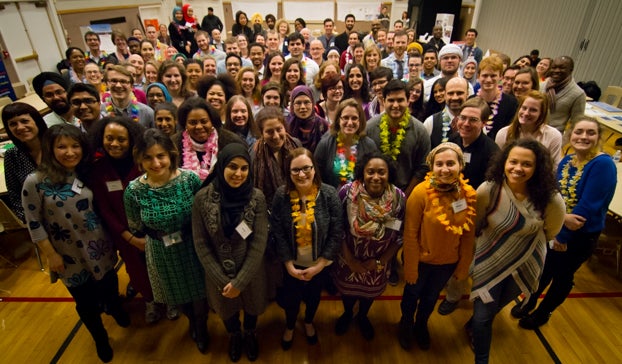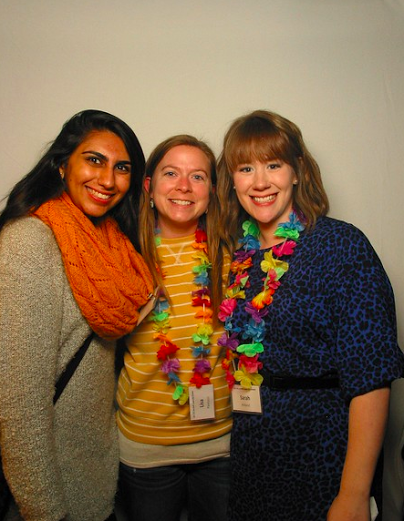Religious Privilege: A Reflection from the 2015 DC Interfaith Summit
 Last weekend, I had the opportunity of attending the DC Interfaith Leadership Summit at the Latter-Day Saints Chapel in Chevy Chase, Maryland. At the summit, I met people from all around the DC-metro area that work and participate in interfaith initiatives, including in topics such as religious privilege, public engagement, and the intersectionality of art and religion. Throughout the course of the daylong conference, I participated in three sessions led by people who work in these fields within their respective communities.
Last weekend, I had the opportunity of attending the DC Interfaith Leadership Summit at the Latter-Day Saints Chapel in Chevy Chase, Maryland. At the summit, I met people from all around the DC-metro area that work and participate in interfaith initiatives, including in topics such as religious privilege, public engagement, and the intersectionality of art and religion. Throughout the course of the daylong conference, I participated in three sessions led by people who work in these fields within their respective communities.
The first session I participated in dealt with religious privilege. I was excited to see how this would be presented, as I knew I was not religiously privileged, being that I am a Shia Nizari Ismaili Muslim. Even within the Muslim community, I wouldn’t be qualified as having religious privilege, and I began to think of how that impacts my day to day interactions with the different communities I am a part of: my religious community back home in Atlanta, my social community of friends at Georgetown, and my academic community of professors and faculty with whom I work and discuss my professional aspirations.
The presenter of this lecture began by asking us to fill out a chart, in which religion was only one of the aspects of privilege that a person could have. This box was complemented with other indicators, like race, socioeconomic status, ethnic background, natural citizenship status, ability, primary language spoken, education, etc. These were all aspects of my identity that I didn’t realize gave me privilege, and I found that although I wasn’t privileged as a Shia Muslim among most of the Christians I find at Georgetown, I was indeed privileged by and large in other respects.
 Following this exercise, our presenter asked us to write down the characteristics of our religious community in accordance with the previous qualifications. When I reassessed my level of privilege within this community, I was completely surprised. Ironically enough, I didn’t have the majority of the privilege indicators within my own religious community, despite the fact that we shared the similar religious background. This amazed me, and it prompted me to think about how I look at privilege alongside religious identity. Even though I am the minority of several sects of Islam, could it be that I am still privileged in the rest of my identity as an able-bodied, college-educated, middle class, heterosexual person?
Following this exercise, our presenter asked us to write down the characteristics of our religious community in accordance with the previous qualifications. When I reassessed my level of privilege within this community, I was completely surprised. Ironically enough, I didn’t have the majority of the privilege indicators within my own religious community, despite the fact that we shared the similar religious background. This amazed me, and it prompted me to think about how I look at privilege alongside religious identity. Even though I am the minority of several sects of Islam, could it be that I am still privileged in the rest of my identity as an able-bodied, college-educated, middle class, heterosexual person?
That was the moment I realized, I truly am privileged to be a Muslim, given the rest of my identities. Looking back on the conference and reflecting on this experience, I think the new question becomes: how do I use that privilege to serve others in my community, however I define that to be?
Noreen Sajwani, NHS ‘15
- Tagged
- Interfaith